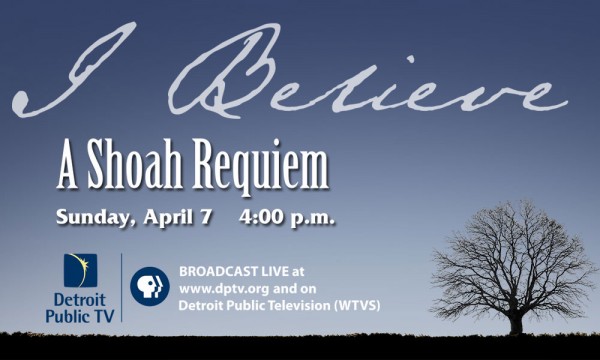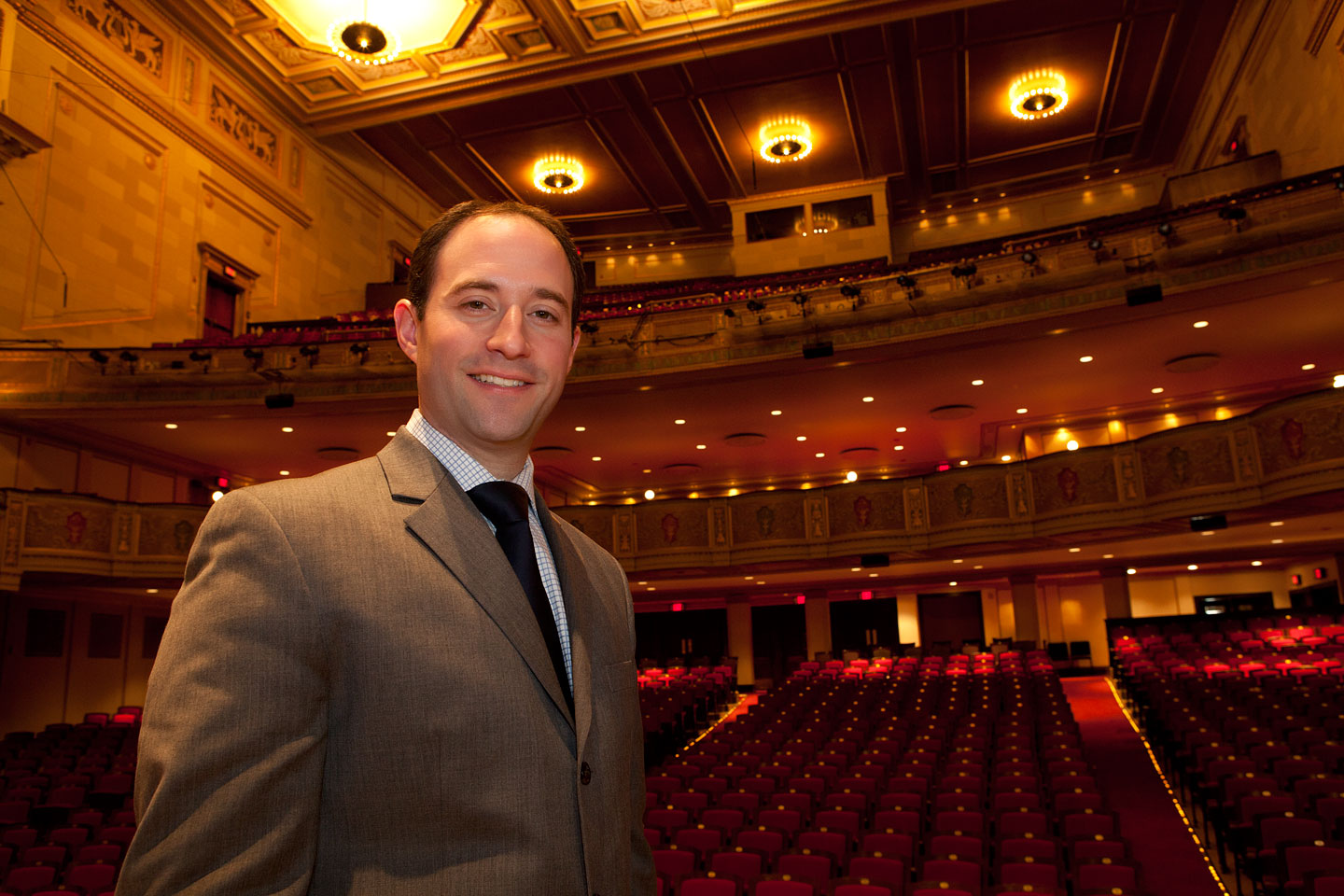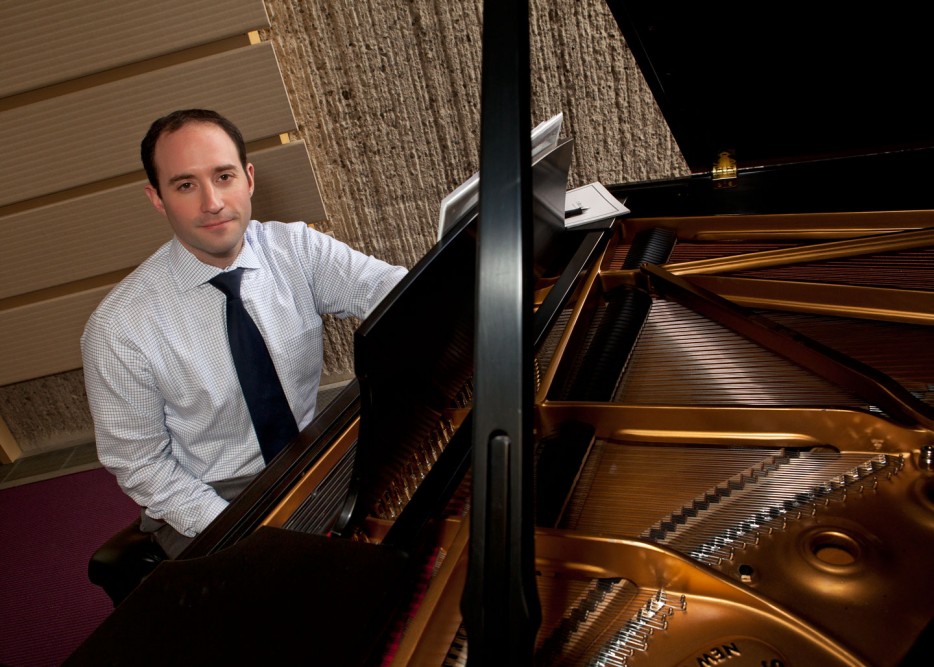by Vivian Henoch
Breaking from his busy schedule, Hazzan Daniel Gross agrees to meet for a photo session downtown at the Max M. Fisher Music Center. With just a few weeks of rehearsals to go before the world premiere of his Holocaust Remembrance Day cantata, I Believe – A Shoah Requiem, he stands with us on an empty stage. As we snap his pictures, he leafs through the score of his music and begins to chant. His voice rises, its depth and range a haunting and joyous thing of beauty, filling the empty theater.
“My voice is not about singing the notes on the page,” he tells us later, “For me, it’s about bringing the words to life.”
Born in Boston, raised in St. Louis, educated at the University of Pennsylvania, Manhattan School of Music, The Juilliard School and The Jewish Theological Seminary of America, Hazzan Gross made his Carnegie Hall debut in 2006. In the opera world, Hazzan Gross has performed with many of the country’s most reputable orchestras, opera companies and chamber music organizations, including the Los Angeles Symphony, the Utah Symphony, the National Symphony Orchestra, Chamber Music Society of Lincoln Center, Pittsburgh Opera, Wolf Trap Opera and Glimmerglass Opera.
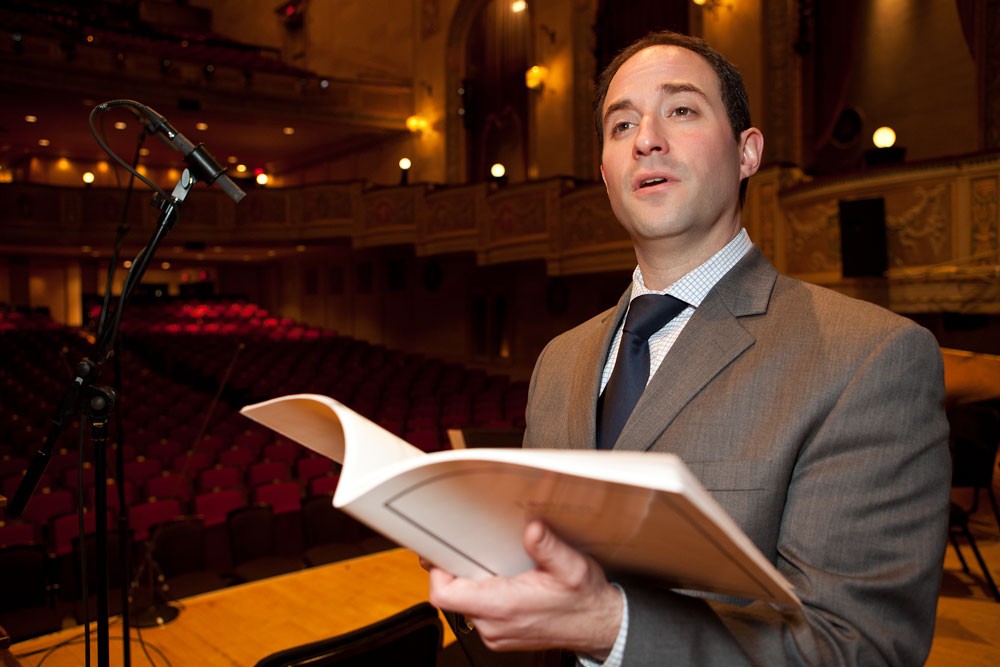
Following his true calling to the clergy, Hazzan Gross began his studies at The Jewish Theological Seminary (JTS) in the H.L. Miller Cantorial School. As an H.L. Miller Fellow, he accelerated through the program and was honored with the Max & Sol Feld Prize in Composition prior to his investiture in May 2009. While attending JTS, Daniel served regularly as the cantor at Brith Sholom Kneseth Israel, in St. Louis, where he worked closely with Rabbi Mordecai Miller.
Hazzan Gross met his wife, Lauren, while performing together at the Wolf Trap Opera Company in 2001. At home, he fulfills his greatest role – that of “Dad.” He and Lauren are the proud parents of three children, Maxim, Zev and Zosia, and two dogs, Zitro and Zeke. Spare time? Eating, in the gym, watching sports or playing baseball.
On Moving to Detroit
MyJewishDetroit: Hazzan Gross, you have lived, worked, traveled and performed in cities around the world. What brought you to Detroit?
Two words. Adat Shalom.
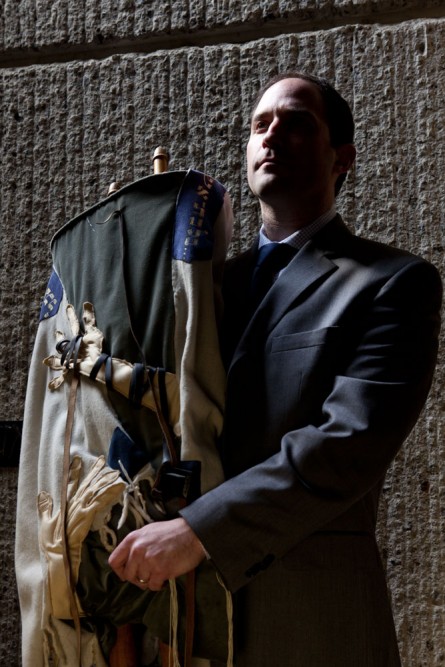
I was about to graduate cantorial school, started interviewing at congregations, and I didn’t even think to come out here. But there were certain people who I respected who advised me that there’s a great synagogue in Detroit to consider. And Lauren and I laughed, “Detroit? Okay, we’ll check it out, but we’re never moving there. . .”
I was fortunate to have several opportunities on the East Coast – all nice congregations, but Lauren and I knew that we needed to find the best fit for our family. There was something truly unique about Adat Shalom’s invitation. We were impressed by the strength of the Jewish community, but also it was the genuine warmth of the rabbis, the staff and the congregation that brought us here. It came down to the question: who are the people who will be my partners, my colleagues, my friends, my community? And hands down, the perfect match was Adat Shalom.
Ultimately, I think we owe that warm welcome to my predecessor, Cantor Larry Vieder, of blessed memory, who devoted so much of his life to Adat Shalom. Cantor Vieder showed the congregation what a cantor truly can be – so much more than a singer of Jewish prayer. A cantor and a rabbi both transcend beyond their bimah responsibilities to become an integral part of the community. I felt pulled to this lifestyle, to this vocation, and from the start I needed to go somewhere where I could live up to my truest potential.
On Finding a Voice
MyJewishDetroit: We understand you have fond memories of summers spent at Camp Ramah in Wisconsin, where you discovered your musical voice (singing the part of Javert in Les Mis in Hebrew no less). Tell us how you got your start.
My parents loved music, but neither were musicians. We always had music playing in the house and in the car and they both knew the importance of musical exposure at a young age. So I started taking piano lessons at the age of five. I loved it and stayed with it until I went to college at 18. It was later when I started singing.
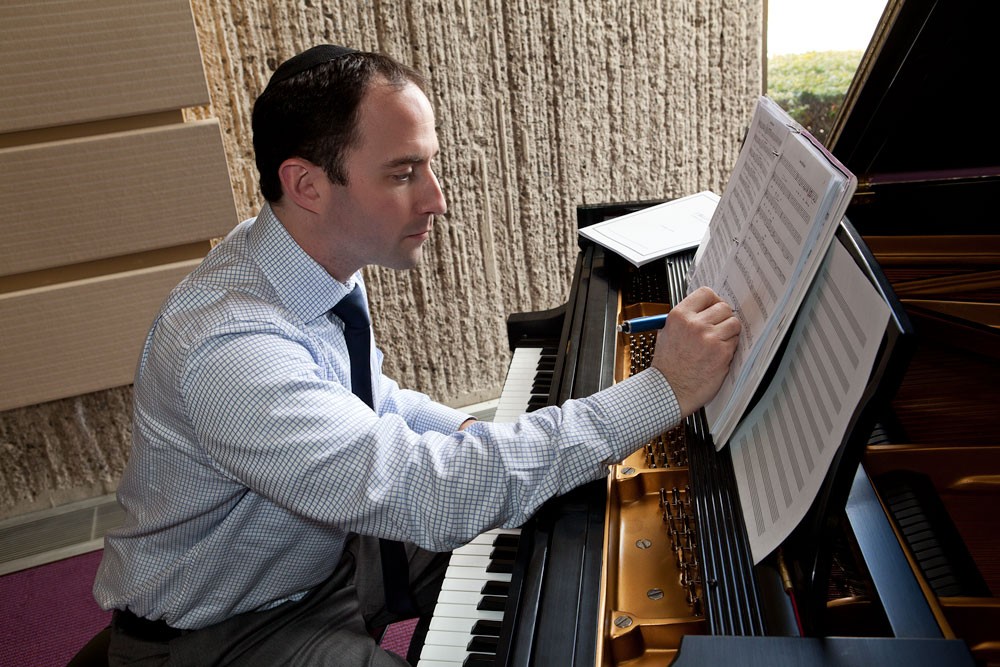
I discovered my voice sort of by fluke, at the age of 14. Every camper at Ramah was required to audition for the camp musical. So I rolled my eyes and sang Happy Birthday. They must have said to themselves, “Hey, the kid’s got a voice in there, let’s give him the lead!”
The year before this experience, at my bar mitzvah, the rabbi commented on what a natural I was, how I had a gift for chanting and a connection to the Hebrew texts. Perhaps you could say it is in my blood. There were rabbis and cantors on my father’s side of the family, none of whom I got to know because they all perished in the Holocaust. My middle name is in memory of my uncle who passed away very young. He was an opera lover, played the accordion, loved music and my parents gave me the name Daniel Baruch in his memory. The name Baruch means blessing.
On creative influences
MyJewishDetroit: Hazzan Gross, you and your wife, Lauren, have brought your considerable creative talents to the Detroit Jewish community. What still moves you today?
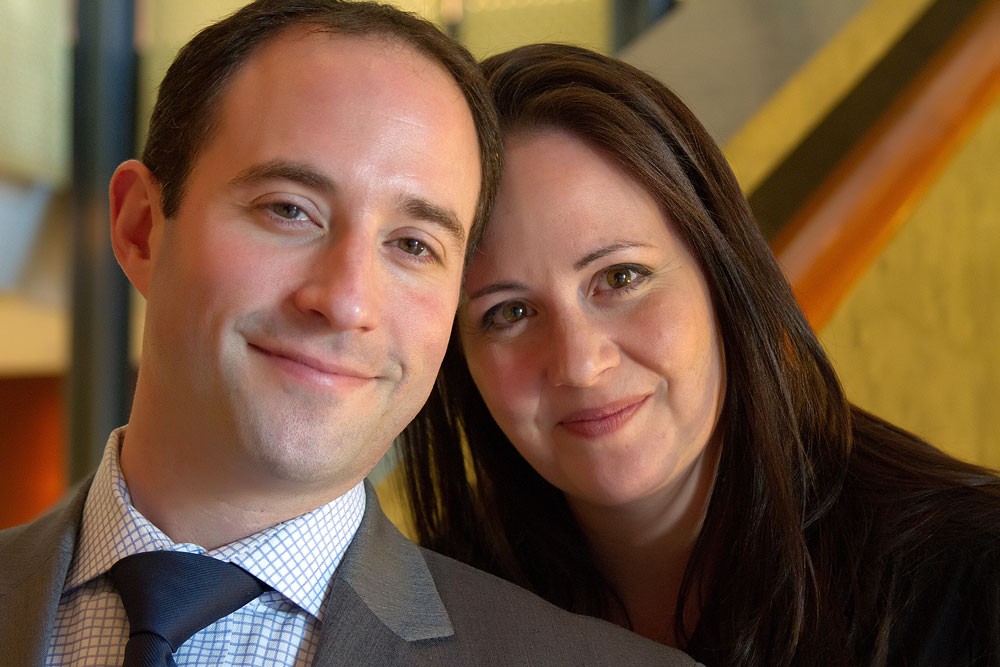
As a musician in Detroit, I’m moved by the history of Motown, as well as the jazz and classical scene in the city. We’ve met some incredible musicians. I’ve started to do cabaret concerts with Cliff Monear, a well-known jazz pianist. We’ve put together a unique fusion, blending my varied styles of singing with his incredible brain, jazz improvisation skills, and gifted chops at the keyboard.
As for the cantors in our community, I don’t think there’s any city that can match the quality of cantors here in Detroit. There’s a long history of strong congregations, most of which have had revered and talented cantors.
I’m also impressed by the camaraderie of the clergy in general. Working together with my cantorial and rabbinical colleagues on the Yom HaShoah program has proven to me how collaborative and welcoming everyone is. Everyone got on board for this event and wanted to help. It’s not about competing congregations here in Detroit; it’s about one giant diversified community.
And another thing – our amazing fortune – Lauren and I have found in this area the best voice teacher either of us have ever had in our lives. We’ve had the opportunity to study with some of the biggest names in vocal pedagogy in New York, and, lo and behold, here in Livonia, Michigan, is our vocal “guru,” Curt Peters.
And yes, we still take lessons, because vocal training is a lifelong endeavor. A voice is like a fine wine – it should get better with age.
On the World premiere of “I Believe”
MyJewishDetroit: In commemoration of Holocaust Remembrance Day (Yom HaShoah) on Sunday, April 7, over 150 voices will ascend the stage of Detroit’s Orchestra Hall at the Max M. Fisher Music Center to present the world premiere of your work, I Believe: A Shoah Requiem. Please tell us a bit about the origin and inspiration for this piece.
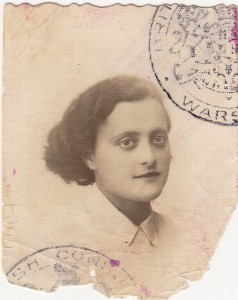
The inspiration came out of necessity. I needed a master’s thesis in order to graduate from cantorial school, and I didn’t want to write a 50-page paper that was going to collect dust on a bookshelf in the library.
Let me take a step back to where it all started: I had jumped from pre-med at Penn to Manhattan School of Music and Juilliard, because somehow I was fueled from above to sing. So I went into the world of opera, and it was great – my passion became my profession. As I was growing more successful as a performer, I was growing less happy as a human. The vagabond lifestyle of a performer was not jiving well with my psyche. It was around the year 2000 that I started serving as a cantorial soloist during the High Holy Days . . . and there I discovered the difference.
With opera and classical music you have a director, a conductor, you have an audience with a preconceived notion of how the music should sound. You have to fit yourself into that mold. With Jewish prayer, singing sacred music, the palette is enormous. The room for creativity and improvisation is endless.
Being a cantor has freed my voice in order to be able to exploit my voice in ways I had never done before. For people attending a service or a funeral, my job is to make them feel something, to set a mood to give them a sense of meaning even though they may not understand the words. If I can provide someone with comfort via my singing, then I have achieved something that is most humbling and gratifying.
Lauren steps into the conversation: The first time I heard Dan as a cantor was a revelation to me, like nothing I ever heard him do before. I loved him on the opera stage (his comic flair is genius), but this was different. There’s an expression about “opening heart doors” and that’s what it was for me with Dan singing on the bimah. His voice was so pure, so liberated, that when you listened to him it didn’t feel like there was a person there singing, it was just like this beautiful music, this prayer, an entirely different understanding of singing.
Dan: On with the story. I graduated from cantorial school in three years versus the usual five. As for my thesis, it was Lauren who had the ding-ding-ding moment. “Dan, why not write music, something you can use in the future?” So I began to think about what I should compose. From all of my studies in Jewish liturgy, I realized there really was not much out there for Yom HaShoah. I decided then to compose an entirely musical service that would be the transformative device to connect and move people during one of the most tragic and difficult days on the Jewish calendar.
For me, there was a personal and powerful connection. I Believe is dedicated to my savta, Masha Gross ז’’ל (née Einstein), who was the only member of her immediate family to survive the Holocaust. I loved every minute I worked on the music, because I already had the words, and all I needed to do was make them come to life.
MyJewishDetroit: Let’s talk about your work at Adat Shalom. Please give us some insight into a “Day in Your Life.”
Discounting the first two and a half hours in the morning, waking up to a household with three children from one to seven years old, a typical day in my life starts with minyan morning prayer, then moving on to bikur cholim, going to the hospital or a shiva visit; then tutoring students (and sometimes adults) in B’nai Mitzvah preparations. On any day, I might be at ATID (the Alliance for Teens in Detroit) teaching the confirmation class. I conduct two choirs, the adult choir and youth choir at Adat Shalom. I teach in the religious school. Then there are the life cycle events: funerals, weddings, births. Plus the study and preparation that goes into all my responsibilities. Sometimes singing feels like the least of what I have to do. When Friday rolls around, I have to remind myself that I have to go out there, lead a service and sing!
On Jewish Detroit
MyJewishDetroit: For the first time in decades, we are seeing a resurgence of the Jewish community. As a “NEXTGener,” married with young children, what do you think makes Jewish Detroit a great place to live, work and play?
The first thing I’d say is that there are so many opportunities for families. The Jewish community here is a great place to raise children. The cost of living here is a huge advantage. We could never live in New York the way we live here. For example, the cost to do Little League here is what one week of Little League would cost in Manhattan! And the change of seasons: I love snow, so any time it snows it makes me smile. For us, it’s been a great move.
On Favorites
Favorite restaurant: Uptown Grille in Commerce Twp.
Favorite hangout for coffee: Biggby Coffee
Favorite place to take kids: The Detroit Zoo
Favorite place to take a walk: Around the neighborhood with the dogs
Favorite building in the Metro Detroit skyline: Our house: there’s no place like home
Favorite Jewish food: my Savta’s (Grandmother’s) kruv (stuffed cabbage)
Favorite Jewish expression: Der mentsch tracht un Got lact. (Man plans and God laughs)
Reading now:
My email. . . and Third Base for Life: A Memoir of Fathers, Sons and Baseball, by Joshua Berkowitz
I Believe – A Shoah Requiem is sold out. However, the program will be webcast at dptv.org and broadcast live on Detroit Public Television WTVS 56.
